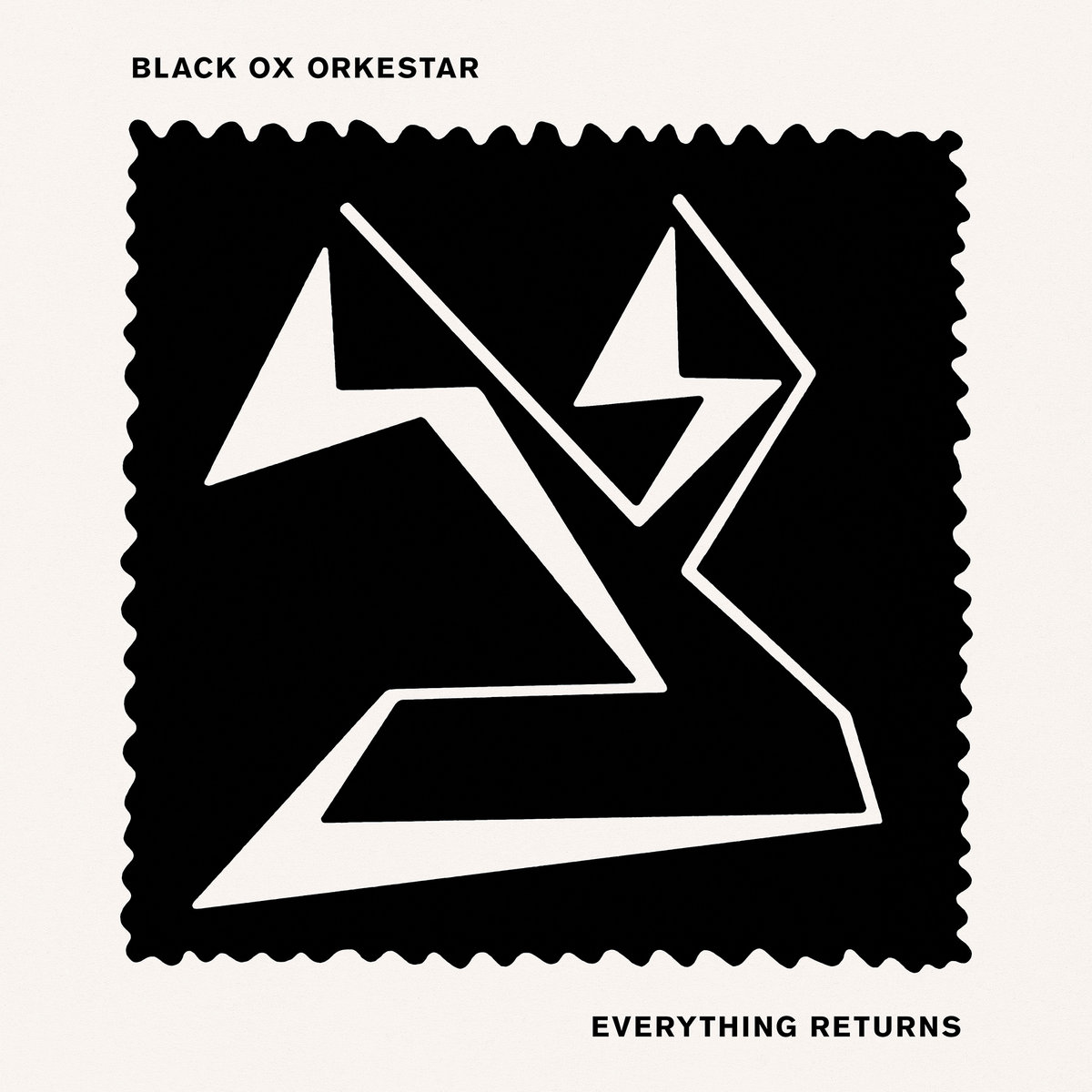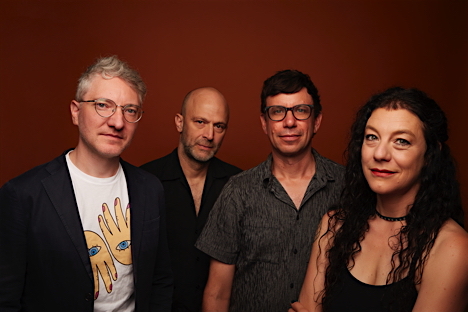Fünfzehn Jahre nach seinem zweiten Album “Nisht Azoy” bringt das kanadische Black Ox Orkestar Anfang Dezember mit “Everything Returns” einen neuen Longplayer heraus – eine Sammlung stimmungsvoller Traditionals und in der Mehrheit auf jiddisch gesungener Vokalstücke, die tief in osteuropäischen Traditionen verwurzelt sind und Einflüsse wie Klezmer auf eine tiefe und hintergründige Weise umsetzen. Auf eine poetische und oft auch explizit politische Weise wird hier das Lebensgefühl jüdischer Diasporaexistenz erfahrbar gemacht. Das Black Ox Orkestar besteht aus Thierry Amar (Bass), Scott Gilmore (Vocals, Cimbalom, Piano, Gitarre), Gabriel Levine (Klarinette, Gitarre), und Jessica Moss (Violine, Vocals) sowie den Gastmusikern Pierre-Guy Blanchard, Julie Richard, Julie Houle, Craig Pederson und Nadia Moss. Das Album erscheint in den gängigen Formaten bei Constellation Records.
“The music on the album is rooted in atmospheric interpretations of traditional Eastern European music. It features original songs and arrangements, drawn from both Jewish and non-Jewish sources, that are political, poetic, and multilingual (in Yiddish and English, but also French and Arabic). Lyrically and stylistically, the songs connect key current issues—from refugees forced to leave their homes, to the return of fascism and exclusionary nationalism —with the legacy of modernist Yiddish poetry and song. As on their earlier albums, the band creates a rich soundscape of textured instruments and haunting voices, making music that is at once from a vanished world and very much of our time and place. Everything Returns explores what it means to make Jewish diaspora music—artforms that survived genocide—in a time of resurgent authoritarianism, white nationalism, and refugee crises. Black Ox Orkestar’s previous releases on Montreal-based Constellation —Ver tanzt? (2004) and Nisht Azoy (2006)—reinterpreted klezmer, Yiddish folk music, and other Eastern European folk traditions through the lens of avant-garde jazz and rock. The band’s genre-bending sound draws tensions between old and new: meticulously researched 19th Century repertoire from Jewish shtetls meets original compositions by Yiddish-speaker Scott Gilmore. Traditional klezmer instruments like the clarinet and cimbalom (hammered dulcimer) meet amplified violin, drenched in distortion and reverb. The result is not fusion music, but rather diaspora music—a cross-cultural call and response of musical lexicons, emerging from the history of Jewish persecution and displacement to celebrate the polyglot dialogue of Jewish, Slavic, Arabic, and Central Asian musical traditions.  Musically, Everything Returns fuses the improvisational traditions of nusakh in Jewish music and taqsim in Arabic music, with contemporary jazz and experimental rock, and the propulsive rhythms of Jewish and Romani folk music. Lyrically, Everything Returns composes new Jewish music in the present tense. The band pivots away from the nostalgia (bordering on historical reenactment) that characterizes some strands of the klezmer and Yiddish revival. Instead, the new compositions grapple with contemporary issues—from the Arab Spring protests and their brutal suppression, to anti-racism struggles, and opposition to the embrace of fascism by white nationalist extremists. Black Ox Orkestar proudly embrace “globalism”—an anti-Semitic dog-whistle used by alt-right extremists—and compose polyglot, lyrical poetry in Yiddish, French, English, Hebrew, and Arabic. This linguistic mosaic is simultaneously a reflection of the diasporic arc of Jewish history, a celebration of Montreal’s multilingualism, and a reflection of the transnational nature of today’s authoritarian movements, refugee flows, armed conflict, and climate crisis. The compositions find solidarity between today’s refugees, atrocity survivors, and human rights activists and the tradition of Jewish anti-authoritarianism, marking the pendulum swing between progressive idealism and the return of nativism and persecution. [...] Everything Returns in some form: the persecutors and the liberators.” (Constellation Records)
Musically, Everything Returns fuses the improvisational traditions of nusakh in Jewish music and taqsim in Arabic music, with contemporary jazz and experimental rock, and the propulsive rhythms of Jewish and Romani folk music. Lyrically, Everything Returns composes new Jewish music in the present tense. The band pivots away from the nostalgia (bordering on historical reenactment) that characterizes some strands of the klezmer and Yiddish revival. Instead, the new compositions grapple with contemporary issues—from the Arab Spring protests and their brutal suppression, to anti-racism struggles, and opposition to the embrace of fascism by white nationalist extremists. Black Ox Orkestar proudly embrace “globalism”—an anti-Semitic dog-whistle used by alt-right extremists—and compose polyglot, lyrical poetry in Yiddish, French, English, Hebrew, and Arabic. This linguistic mosaic is simultaneously a reflection of the diasporic arc of Jewish history, a celebration of Montreal’s multilingualism, and a reflection of the transnational nature of today’s authoritarian movements, refugee flows, armed conflict, and climate crisis. The compositions find solidarity between today’s refugees, atrocity survivors, and human rights activists and the tradition of Jewish anti-authoritarianism, marking the pendulum swing between progressive idealism and the return of nativism and persecution. [...] Everything Returns in some form: the persecutors and the liberators.” (Constellation Records)
Porträt © Stacy Lee
